
Our son used to tell his friends, when he was of school age, that he seldom visited our local library because he could usually find what he needed at home. I’m afraid that’s still true. We have 14 bookcases of the six-foot-tall variety, all of them overflowing. But it’s the books and magazines on the coffee table that catch my attention first.
It will take me more than a month to go through the reading matter described in this post—all of it from my home library—but below are the current titles on my reading list.
Beginners: The Joy and Transformative Power of Lifelong Learning
Beginners: The Joy and Transformative Power of Lifelong Learning is a half memoir/half psychology book by Tom Vanderbilt about the benefits of learning for the sake of learning. Buddhist monks refer to this type of learning as Beginner’s Mind.
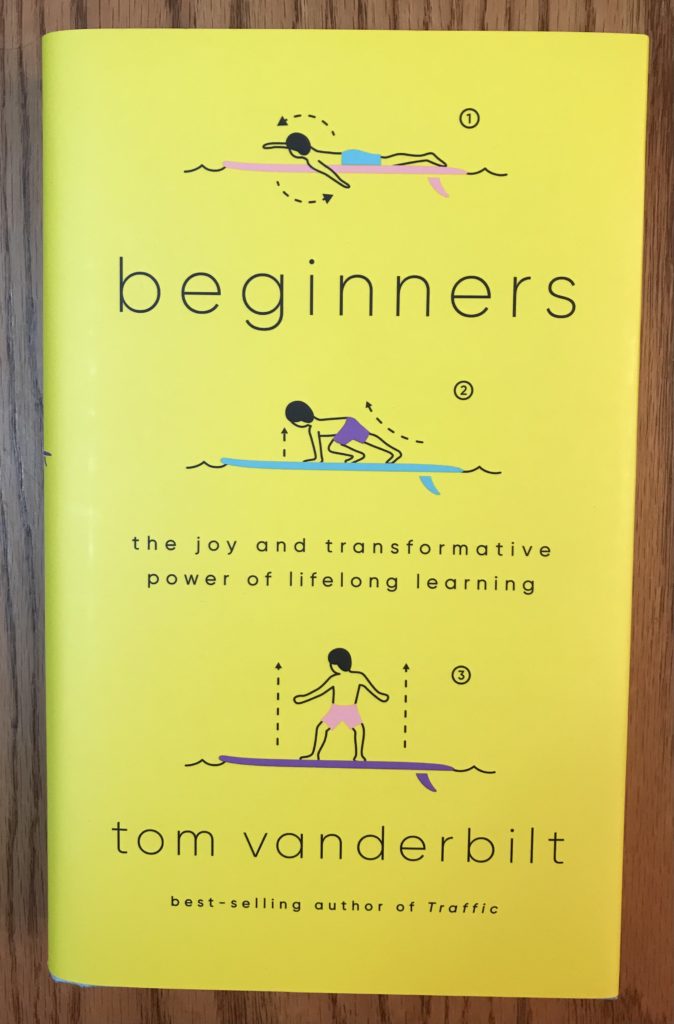
Vanderbilt spent a year learning five new activities with a Beginner’s Mind outlook. The activities—chess, juggling, surfing, drawing, and singing—were completely unrelated to his professional life. He focused on activities he would enjoy learning, were locally accessible, and did not seem to be too difficult. In a podcast titled Tom Vanderbilt on Channeling Beginner’s Mind, Overcoming Limited Beliefs and The Joy of Lifelong Learning, he describes what he had in mind when he selected his five activities: “I wanted to have more of a classic, artistic, almost Renaissance-like style of exploration and maturation and evolution.”
What Vanderbilt discovered is that learning is a non-linear process. In his book, he refers to how a baby learns how to sit up, crawl, and eventually walks. Walking fluidly doesn’t come right away, however. The baby will go back and forth between crawling and walking, falling down often but getting back up again. The same thing happens when an adult tackles a new activity. Learning is a stutter-step process where you move backwards a step or two before you can stride forward. Unlike babies, self-limiting beliefs get in the way of adult learning. Adults worry about embarrassing themselves; they are afraid they will be identified as beginners with a big “B” stamped on their foreheads. They also create mental hurdles by telling themselves “age makes it harder to learn” or “you’re going to do this, these are the benchmarks you have to reach.”
The author of Beginners attempted to find the same joy that infants do when they play, explore, and fail. He compared the way infants learn without any particular goal in mind to expectations society sets for adults. Typically, adults are expected to set goals with clear, measurable outcomes, and to do so quickly, efficiently, and effectively. Learning is definitely not just for the sake of learning; there are expectations for how success will be measured and how that learning will be applied.
As I read Vanderbilt’s book, I cannot help thinking about the “smart goals” I recently set that are connected with my day job. Is there less joy associated with learning that is tied to specific outcomes?
For more information about Tom Vanderbilt, visit https://tomvanderbilt.com/.
The Sun (March 2021 issue)
I subscribe to a glossy black-and-white literary magazine called The Sun that always challenges my thinking. Filled with essays, memoirs, short stories, poetry, essays, and interviews, I can count on being exposed to different points of view.
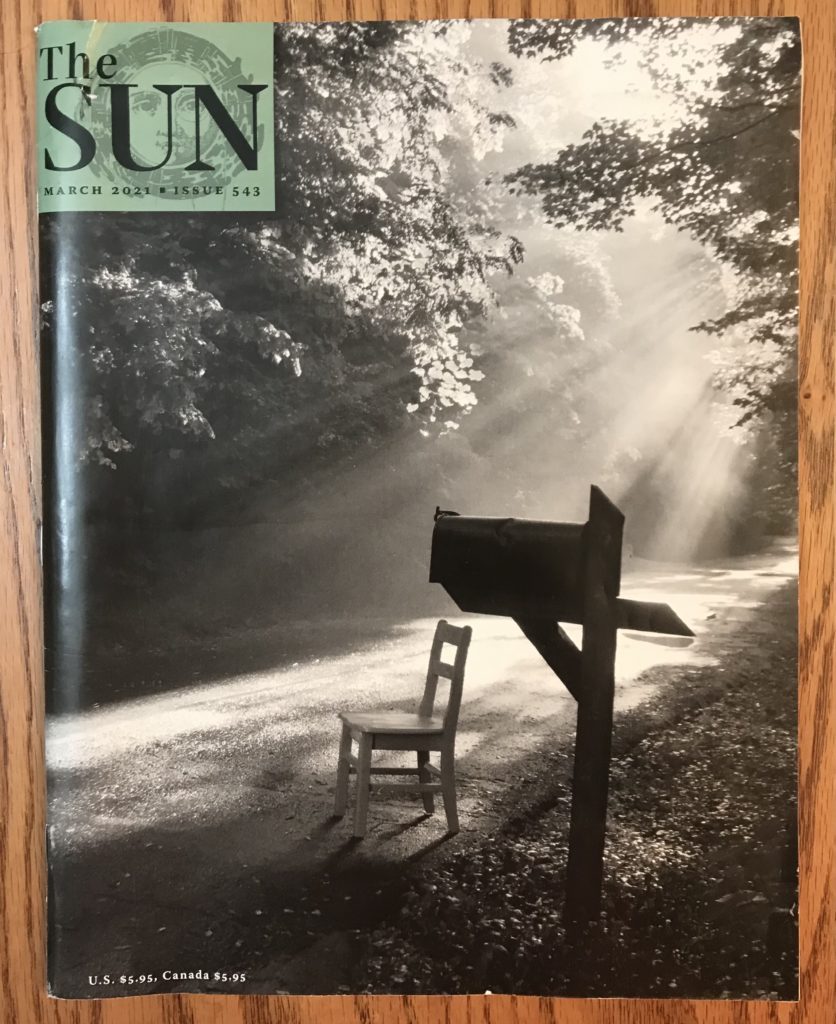
My favorite section in the magazine is Readers Write, a column in which readers are invited to write about topics on which they are the only authority. The one-word topics are announced ahead of time, and are “intentionally broad in order to give room for expression,” say the editors of The Sun. The March topic is Mail, and I can’t wait to read the stories this single word evokes. I have often thought that even if I never submit a Readers Write piece, these one-word topics are story-starters for my personal journaling efforts. The April and May topics, respectively, are Sisters and Brothers.
Highlights from this month’s issue, which overall appears to focus on social justice, include:
- A thought-provoking interview titled “Unstacking the Deck: Lara Bazelon on the Deep-Rooted Flaws of Our Justice System”
- “Still Don’t Feel Free,” a memoir in which a former inmate-turned-writer, describes how he adjusts to life outside prison
- “Nesting” is a personal essay about a father’s relationship with his young son
- “Fighting Back” is a poem about a son learning from his father how to use his fists to defend himself, how this affects him as he grows into adulthood, and what he decides to teach his own son
- “Precarious” is about an older sister’s relationship with a younger one who has spent much of her life in a correctional facility
When you subscribe to The Sun, you get web access to the magazine’s entire library of issues.
Lyrical Iowa 2020
I am working my way through the 75th anniversary issue of the Iowa Poetry Association’s annual anthology, titled Lyrical Iowa. Reading it a little bit at a time, slowly, enables me to appreciate each poem in a way that speed-reading would never permit.
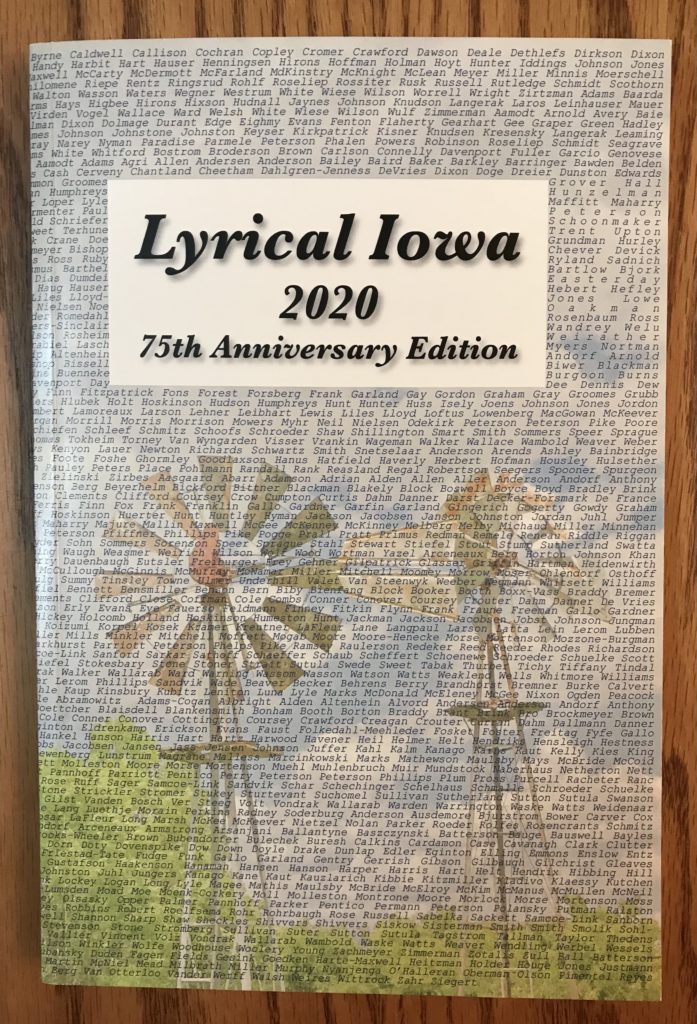
This anthology features poets, young and old, from all across Iowa. My guess is that you can only find this volume on the shelves of your local library or in your mailbox if you place an order. I order a copy every year; poetry is not widely read and is a practice that won’t survive if the organizations that promote it are not supported. I view poetry as a carpet woven with threads from our personal histories, our views on faith, family and justice, and just about any issue that a person might face from cradle to coffin. It’s an important chronicle of the human state, in other words.
Nineteen years ago, my son and I both submitted one of our poems to the annual competition and were fortunate in getting them accepted for publication—his poem was included in the youth division and mine in the adult one. There are separate categories for adults and youths to submit their work, always with a February deadline. I have continued to write and publish poetry for Lyrical Iowa ever since that first poem was published.
The Iowa Poetry Association is hosting a Spring 2021 Online Workshop via Zoom on Saturday, April 24. If you are interested, visit https://iowapoetry.com/events.htm to learn more. You can also read about the IPA Live! Workshops that are offered on select Wednesday evenings.
Lean In: Women, Work, and the Will to Lead
Lean In: Women, Work, and the Will to Lead, by Sheryl Sandberg, has been around since 2013, when I was not part of the traditional workforce. I did not hear about it at that time, but am interested now in what she has to say about women in leadership. The book was suggested by my employer in terms of how it relates to taking initiative, a topic I am exploring as one of my development goals this year.
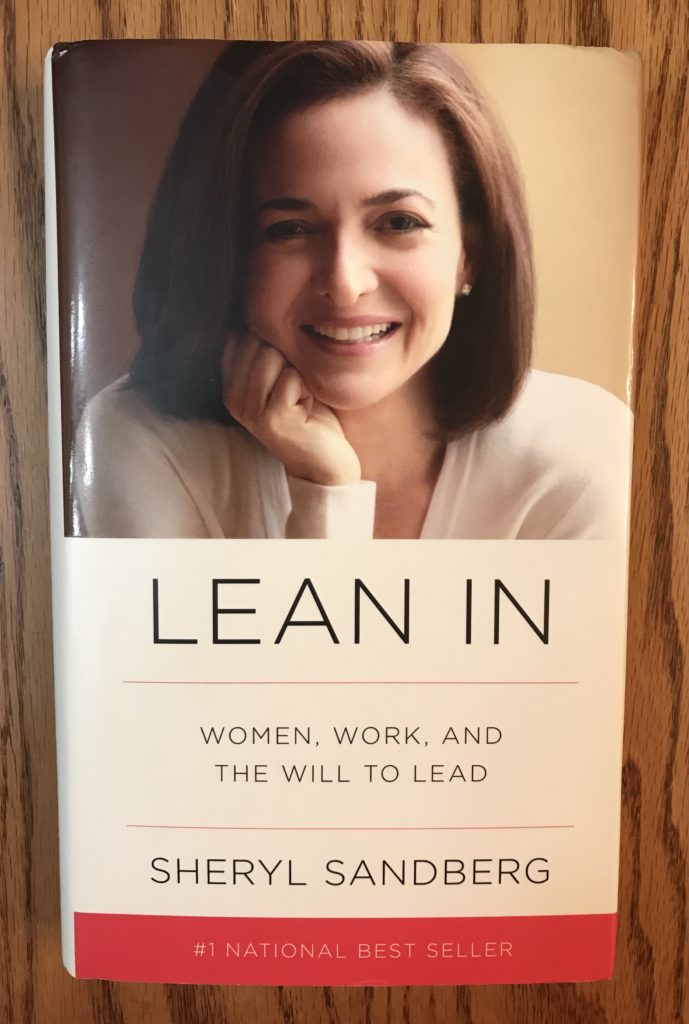
Sandberg is also the founder of the Lean In community, which is about small peer groups called Lean In Circles that meet monthly “for ongoing encouragement and development.” Their official tagline is “Behind every woman is a Circle of women. Make it official.” You can find the community on Facebook or at www.leanin.org.
Where I work, we have a system of “Power Circles” that meet monthly to do exactly what a Lean In Circle does. Our small group meetings are based on the same concept started by Sandberg, but operate outside of her community. Consisting of 8-10 (mostly) women who meet monthly to cover a different development topic each time, we take turns leading a discussion. Last year we addressed such topics as:
- Finding Your Passion
- Mental Health
- What Matters Most
- Stop Apologizing
- The Benefits of Impromptu Speaking
- Courage and Vulnerability
- What’s Your Creativity Quotient?
- Everything You Know About Addiction is Wrong
- Gratitude, Giving Back and Leadership
I’m curious to know what Sandberg says about Lean In Circles, as well as leadership, taking initiative, and professional development.
The Forest for the Trees: An Editor’s Advice to Writers
The Forest for the Trees: An Editor’s Advice to Writers was written by Betsy Lerner 21 years ago but is still relevant today. I have the original hardcover edition instead of the revised edition linked in this post.
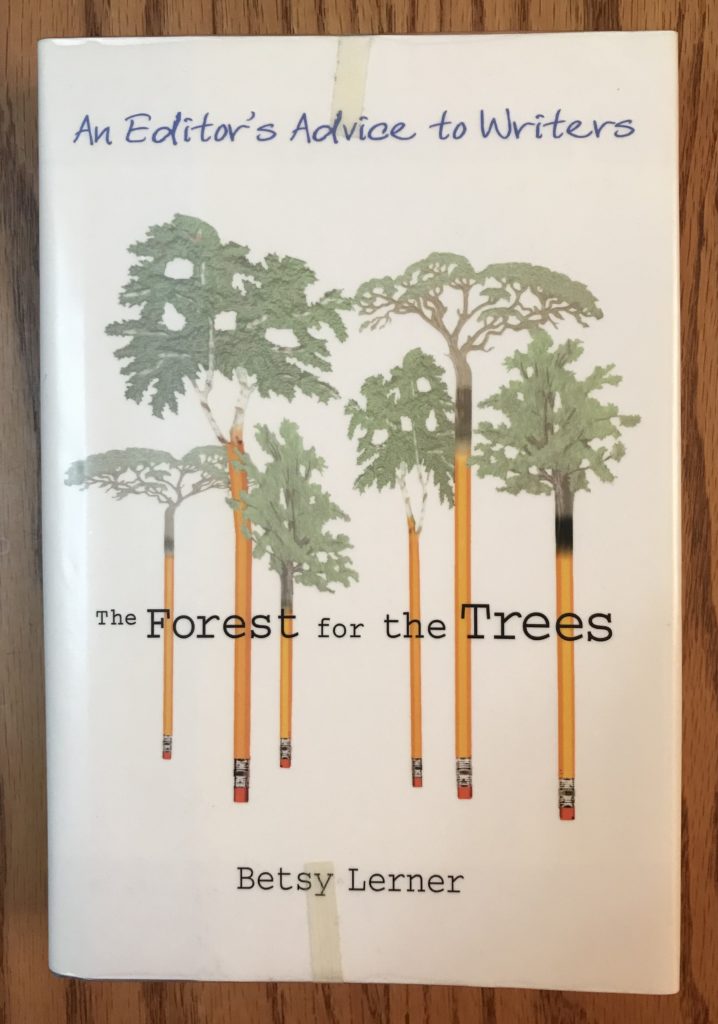
According to the book jacket, Lerner writes stories about six types of personalities whose behavior may help or hurt them in their efforts to publish. These include:
- The Ambivalent Writer
- The Natural
- The Wicked Child
- The Self-Promoter
- The Neurotic
- Touched by Fire
Lerner also describes the traditional publishing process, drawing upon her experiences as a graduate of an MFA program, her former role as an editor, and her role as a writing agent. She delves into the mind of a writer, discussing the balance that writers consider between writing for art versus writing for pay.
Magic Lessons
Magic Lessons, by Alice Hoffman, is the prequel to another book titled Practical Magic. If you have never read a book by Hoffman and enjoy more realistic literature, you might be inclined to say, “Not another book about witches!”
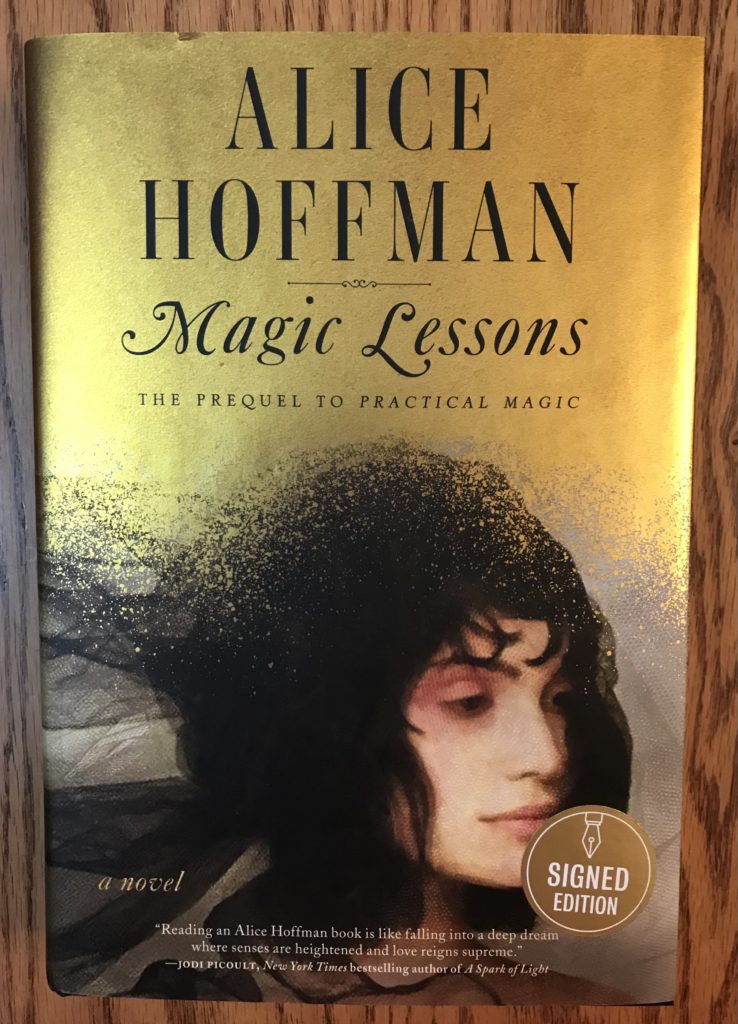
I admit I like reading books with a fantasy backdrop. Bring on your witches, time travelers, conjurers, and mythical creatures. I am willing to suspend belief as long as the relationships between beings are real and meaningful. And that is true of every story I have read by Alice Hoffman. The lesson that is taught in this book ultimately comes down to one important one: Love is the only thing that matters.
In a conversation with Alice Hoffman, Goodreads reader Marybeth McGreen commented, “Your books are like fairy tales for adults.”
The complete series (in reading order) includes these tales about the Owens sisters, a family that has been cursed in the matter of love for over 300 years:
- The Rules of Magic
- Magic Lessons
- Practical Magic
- The Book of Magic (coming October 2021)
Visit https://alicehoffman.com/ to learn more about the author and her books.
I’m always up for new reading recommendations. What’s on your coffee table these days?
© 2021 Judy Nolan. All rights reserved.

I have been reading out many of your stories and i can state clever stuff. I will definitely bookmark your site.
UpdateLand
I’m truly enjoying the design and layout of your website. It’s a very easy on the eyes which makes it much more enjoyable
HowMinute
My partner and I stumbled over here different website and thought I should check things out. I like what I see so now i am following you. Look forward to looking into your web page yet again.
Paul Brown